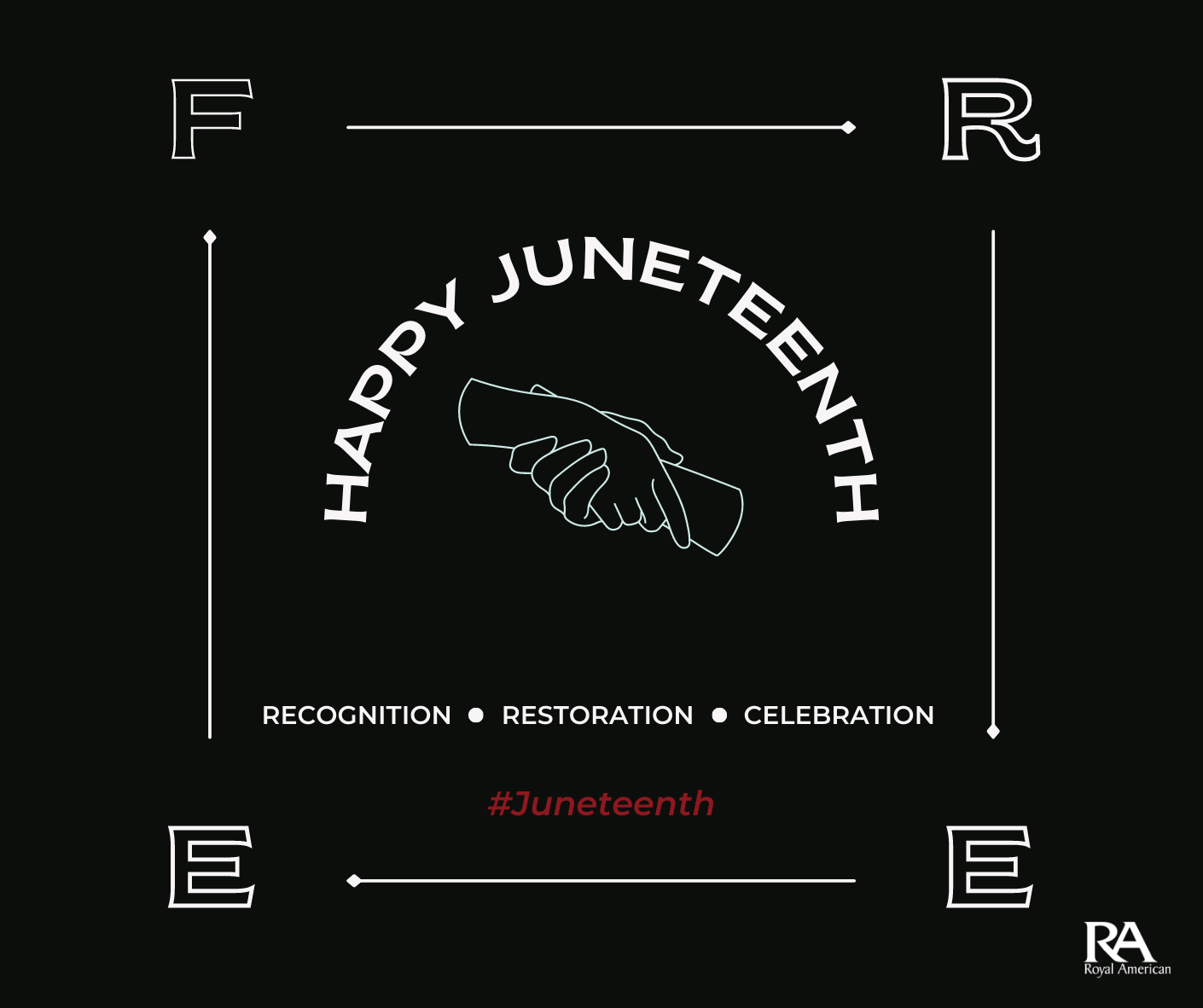Happy Juneteenth
 Juneteenth today, celebrates African American freedom and achievement while encouraging continuous self-development and respect for all cultures. As it takes on a more national, symbolic, and even global perspective, the events of 1865 in Texas are not forgotten, for all of the roots tie back to this fertile soil from which a national day of pride is growing.
Juneteenth today, celebrates African American freedom and achievement while encouraging continuous self-development and respect for all cultures. As it takes on a more national, symbolic, and even global perspective, the events of 1865 in Texas are not forgotten, for all of the roots tie back to this fertile soil from which a national day of pride is growing.
The future of Juneteenth looks bright as the number of cities and states creating Juneteenth committees continues to increase. Respect and appreciation for all of our differences grow out of exposure and working together. Getting involved and supporting Juneteenth celebrations creates new bonds of friendship and understanding among us. This indeed brightens our future – and that is the Spirit of Juneteenth.
– www.juneteenth.com
In an effort to join in the Celebration, Royal American recognizes this day as a companywide holiday. We highly encourage everyone to read the history of this day below as it is crucial to the history of this great country and promotes a beautiful message of education, culture, and harmony. We firmly believe a brighter future is upon us and look forward to making those strides together.
The History of Juneteenth
America’s birthday is fast approaching. But let’s not wait for July 4 to light the fireworks. There is another Independence Day on the horizon.
Juneteenth falls on June 19 each year. It is a holiday whose history was hidden for much of the last century. But as the nation now observes the 150th anniversary of the Civil War’s onset, it is a holiday worth recognizing. In essence, Juneteenth marks what is arguably the most significant event in American history after independence itself—the eradication of American slavery.
For centuries, slavery was the dark stain on America’s soul, the deep contradiction to the nation’s founding ideals of “Life, liberty and the pursuit of happiness” and “All men are created equal.” When Abraham Lincoln issued the Emancipation Proclamation on January 1, 1863, he took a huge step toward erasing that stain. But the full force of his proclamation would not be realized until June 19, 1865—Juneteenth, as it was called by slaves in Texas freed that day.
The westernmost of the Confederate states, Texas did not get news of Gen. Robert E. Lee’s surrender at Appomatox that April until two months after the fact. But they heard once Union Gen. Gordon Granger, a New Yorker and West Point graduate with a distinguished wartime service record, arrived in Galveston Bay with more than 2,000 Union troops. It was on June 19 that he publicly read General Order No. 3, which began: “The people of Texas are informed that, in accordance with a proclamation from the Executive of the United States, all slaves are free.”
In amazement and disbelief, the 250,000 former slaves in Texas learned that they had been freed by the Emancipation Proclamation, which could not be enforced until the war was over. (It applied only to the states “in rebellion” at the time it was issued.) Shocked, disoriented, most likely fearful of an uncertain future in which they could do as they pleased, the liberated slaves of Texas celebrated. Their moment of jubilee was spontaneous and ecstatic, and began a tradition of marking freedom on Juneteenth.
But Juneteenth was never accorded official respect or recognition. In the bitterness of the Reconstruction and Jim Crow eras, few states of the former Confederacy had any interest in celebrating emancipation. And as many African-Americans migrated north, especially in the Depression era, Juneteenth became a largely forgotten vestige of the Civil War era.
Before emancipation, America’s slaves and anyone else who prized equality, freedom and liberty knew that the Declaration of Independence only meant equality, freedom, and liberty for some.
This year, let’s remember Juneteenth, the holiday that doesn’t mark a document, a battle, a birthday or a national tragedy, but the fundamental promise of America being more completely realized—the day on which Thomas Jefferson’s rousing rhetoric finally rang true throughout America, for all Americans.
– Juneteenth: Our Other Independence Day, By Kenneth C. Davis , SMITHSONIANMAG.COM
